An online trend in which people label impulsive cleaning as “manic cleaning” has raised concerns from those with actual manic experiences who feel the casual use of mental health terms diminishes the severity of conditions like bipolar disorder.
Many people have experienced a sudden urge to clean or dedicated a specific period during the year to drastically wash their home, such as spring cleaning. Yet, some individuals have found a questionable way to brand the need to instantaneously cleanse their surroundings.
HighlightsImpulsive cleaning labeled as ‘manic’ trends on TikTok, sparking concern.‘Manic cleaning’ diminishes the severity of genuine mental health terms.Experts warn against casual use of psychiatric terms for ordinary behavior.True mania involves severe mood changes, not just sudden cleaning urges.
Some oblivious people on TikTok have been using serious psychiatric terms to describe a relatively ordinary behavior. The latest consists of labeling random bursts of motivation to tidy up as being manic cleaning.
A trend in which people label impulsive cleaning as “manic cleaning” raised concerns for people who feel it diminishes real mental disorders

Image credits:freepik
TikToker Jessica Roof, for example, posted a video that’s been viewed over eight million times where she was seen walking into a room and dropping a full basket of laundry.
She captioned: “When you’ve been manic cleaning for the past 8 hours and go to tackle the 3 baskets of laundry but then feel the switch flip.”
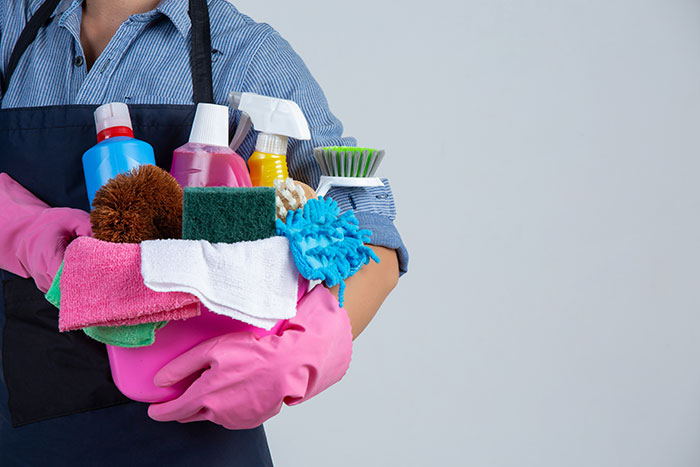
Image credits:jcomp
25-year-old Hanno Ortiz, from Kansas, USA, was diagnosed with schizoaffective disorder bipolar type, meaning she experiences both manic and depressive episodes, as well as delusions and hallucinations.
She told USA Today: “It is absolutely insensitive and invalidating to see mental health language being used as a cute little adjective or referring to something completely normal.”
She continued: “Unfortunately, serious symptoms of mental illness have become trendy and have lost their meaning.”
Although intense cleaning spells are common behaviors among people experiencing mania, experts say they last much longer than a couple of hours
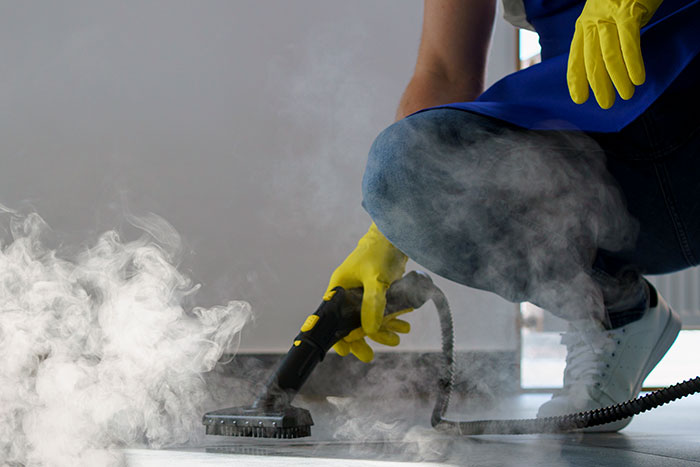
According to Hanno, manic cleaning videos have been contributing to misinformation about mania, as people associate it with ordinary behaviors and ignore other, more debilitating symptoms.
David Miklowitz, a psychiatry professor at the University of California, Los Angeles, USA, explained that a person experiencing a manic episode might deep-clean their apartment at midnight on two hours of sleep or spam former classmates with messages asking to meet after years of no contact.
Mania is a condition in which you have a period of abnormally elevated, extreme changes in your mood, and it is often associated with bipolar disorder
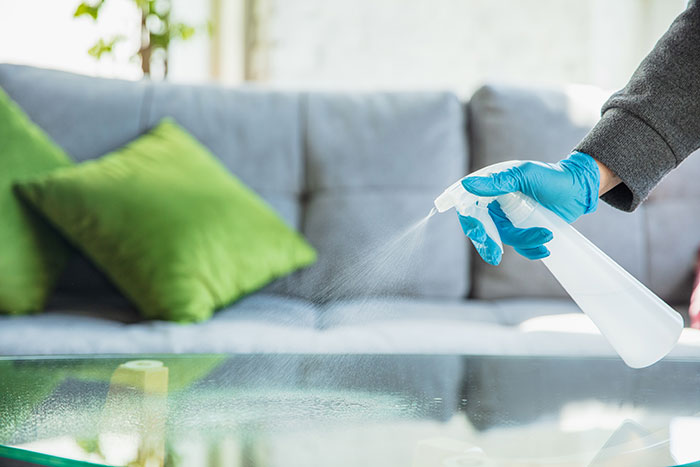
Image credits:master1305
According toHealthline, people with bipolar I disorder experience more severe highs (mania) and may not have depressive episodes. While people with bipolar II experience a less severe high (hypomania), their diagnosis includes depressive episodes.
Professor Miklowitz explained: “There’s the assumption that being in a high state of frenetic activity means you’re bipolar.”
“It’s like when someone thinks they have ADHD because they have trouble focusing.”
“But people don’t realize the other part of the disorder, which is when you fall into a severe depression.”
“We’re not talking about just getting tired of cleaning.”
“We’re talking about having trouble getting out of bed, not being able to sleep even though you want to, losing appetite, or feeling suicidal.”
“Unfortunately, serious symptoms of mental illness have become trendy and have lost their meaning,” a person with a schizoaffective disorder bipolar type said
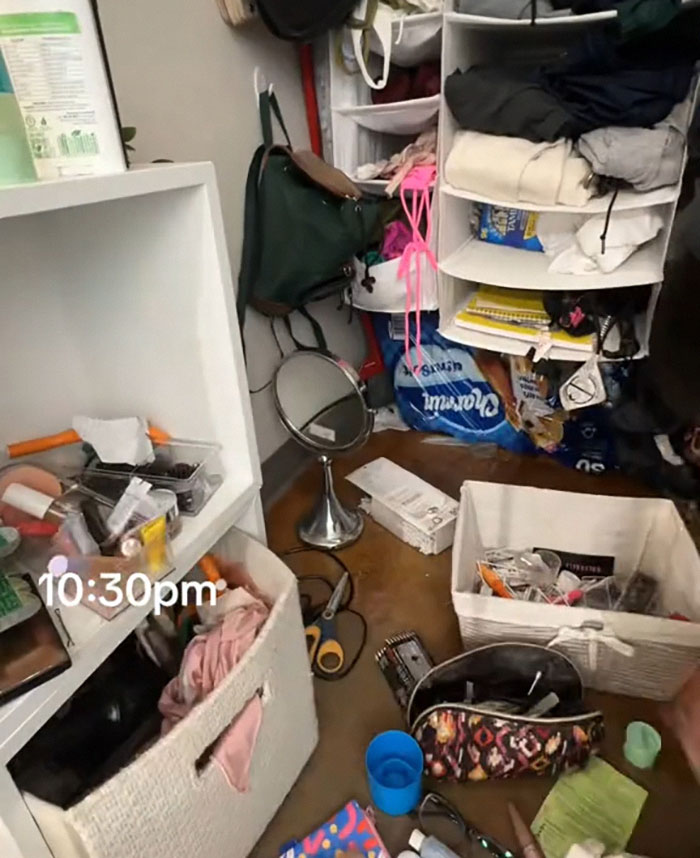
Image credits:testies123
The psychiatry professor revealed that random bursts of motivation to clean were considered manic only if they were unusual, noticeable, occurred every day for a week or more, and affected a person’s daily life, such as their ability to work or care for their children.
“It’s not fun, and people can end up arrested or in the hospital.
“I know that people online are just joking around, but taking a label like mania and applying it to an everyday behavior can diminish what it’s like to really have bipolar disorder.”
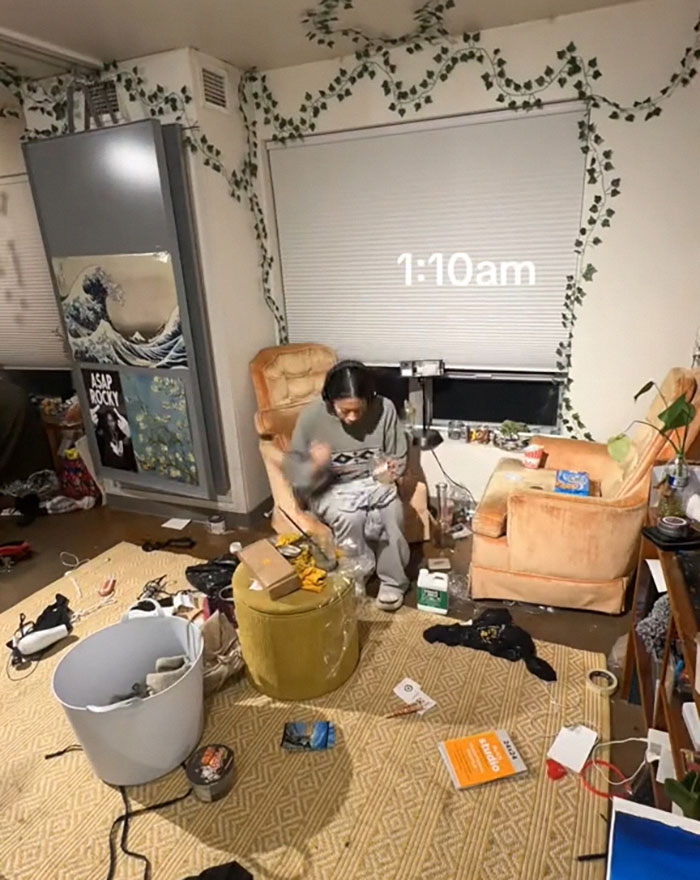
José Menchón, a psychiatrist and director of Centre Medic BM in Barcelona, Spain, said people who have frequent cleaning sprees may exhibit obsessive-compulsive symptoms instead, which include intense urges to be orderly, as per USA Today.
TheNational Institute of Mental Healthdescribes obsessive-compulsive disorder, commonly referred to as “OCD,” as a long-lasting disorder in which a person experiences uncontrollable and recurring thoughts (obsessions), engages in repetitive behaviors (compulsions), or both. People with OCD have time-consuming symptoms that can cause significant distress or interfere with daily life.
Professor Miklowitz suggested that a person should ask themselves: “Do my cleaning sprees interfere with my job, relationships, or physical or mental health?”
A person experiencing a manic episode might deep-clean their apartment at midnight on two hours of sleep, an expert said
“Next, consider whether you have other manic symptoms, such as no desire to sleep and high energy that’s out of character for you.”
“If you are experiencing at least three manic or depressive symptoms, seek a mental health evaluation so you can receive proper treatment, if necessary, which may involve a mix of medication and talk therapy.”
The psychiatry expert revealed that doing so was especially helpful for people who have a family history of bipolar disorder or OCD, as both disorders can be passed down through generations.
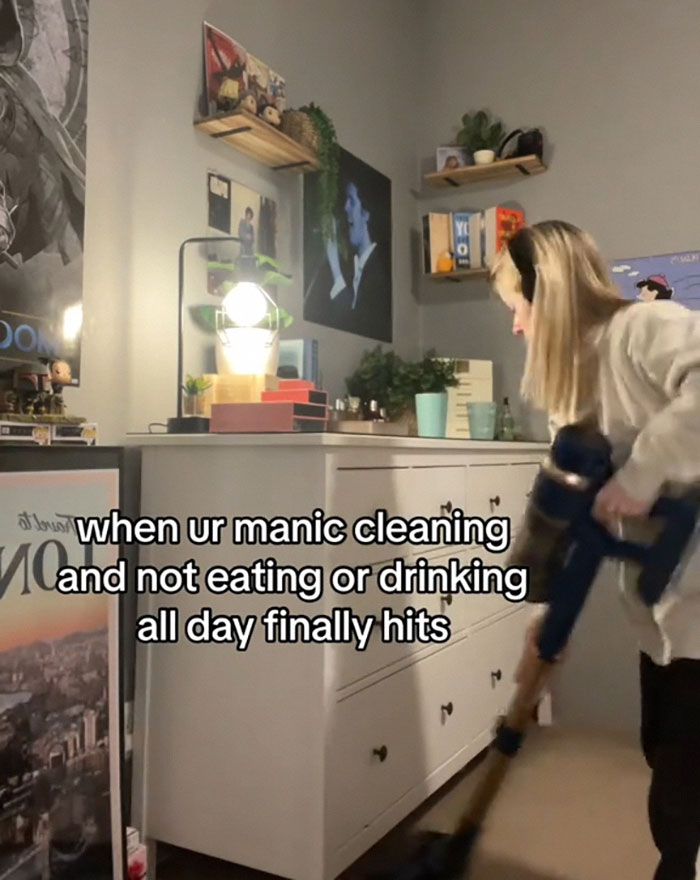
Image credits:b0btaildog
He added: “With any psychiatric disorder, you don’t want to just take one behavior and say, ‘That’s what I have because I do it.'”
“All illnesses are associated with normal behaviors to an extent.”
He also urged people to be mindful of the language they use to describe mental health, such as avoiding phrases like “schizo,” “delulu,” and “I’m so ADHD.”
“It’s like when someone thinks they have ADHD because they have trouble focusing,” the expert said
Sarah Victor, an assistant professor of clinical psychology at Texas Tech University, told USA Today: “They oversimplify, and in many cases, are inaccurate reflections of the experience of these types of problems.
“Many people already feel ashamed about living with mental illness or other problems, and these terms can exacerbate that.”
Nilou Nekou, a licensed marriage and family therapist and chief clinical officer at Alter Health Group in California, emphasized the difference between “manic” and “impulsive,”The New York Postreported.
She told Fox News Digital in an interview: “I think the word ‘manic’ is attention-seeking.
“It does draw a negative component to it because if somebody is really dysfunctional, or they have that diagnosis, this could be a dangerous label [to use] on social media.”
Bipolar disorder affects approximately 5.7 million adult Americans, or about 2.6% of the US population age 18 and older every year, as per the National Institute of Mental Health.
The institute further estimates that 1.2% of U.S. adults had OCD in the past year. Past year prevalence of OCD was higher for females (1.8%) than for males (0.5%).
“It’s the best cleaning, you don’t miss a spot,” a TikTok user commented












Thanks! Check out the results:You May Like“Call Me Lazy”: Mother, 34, Stuns With Ozempic Transformation And Side EffectKarina BabenokPassengers Upset After Plane Makes Emergency Landing Due To “Serious Medical” Crisis On BoardKarina Babenok"Stop All Flights": Unknown Illness Claims Over 50 Lives With Hours Between Symptoms And FatalityDonata Leskauskaite
Karina Babenok
Donata Leskauskaite
News